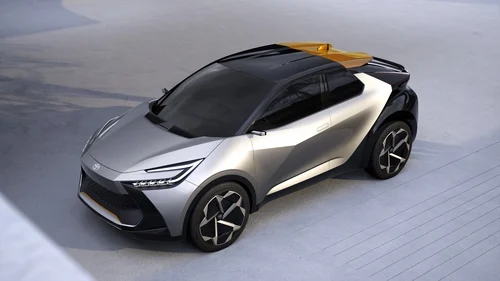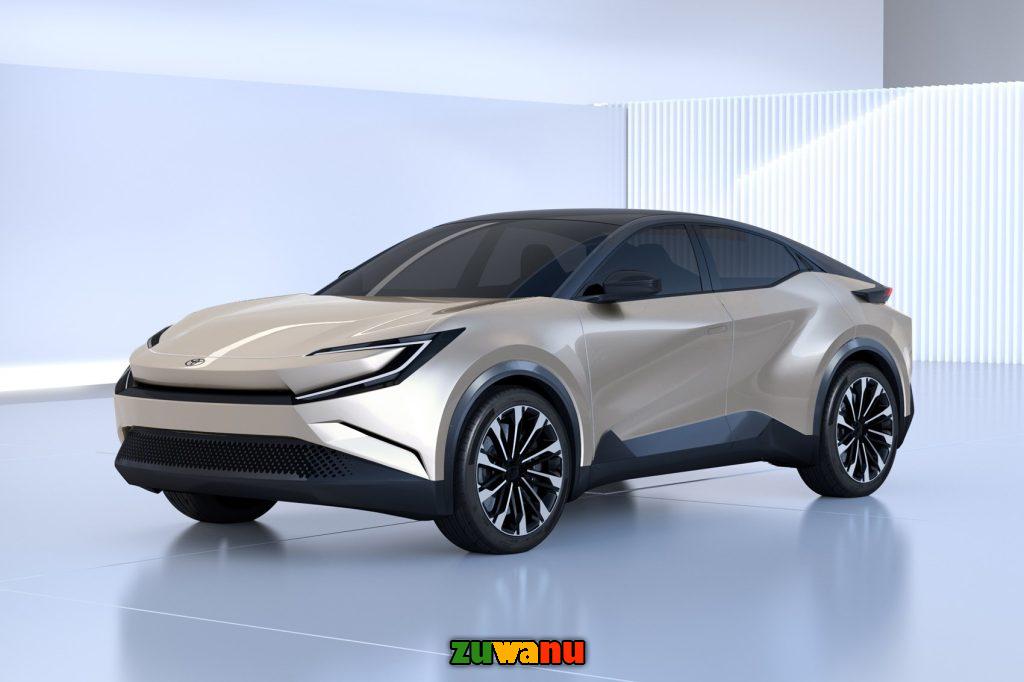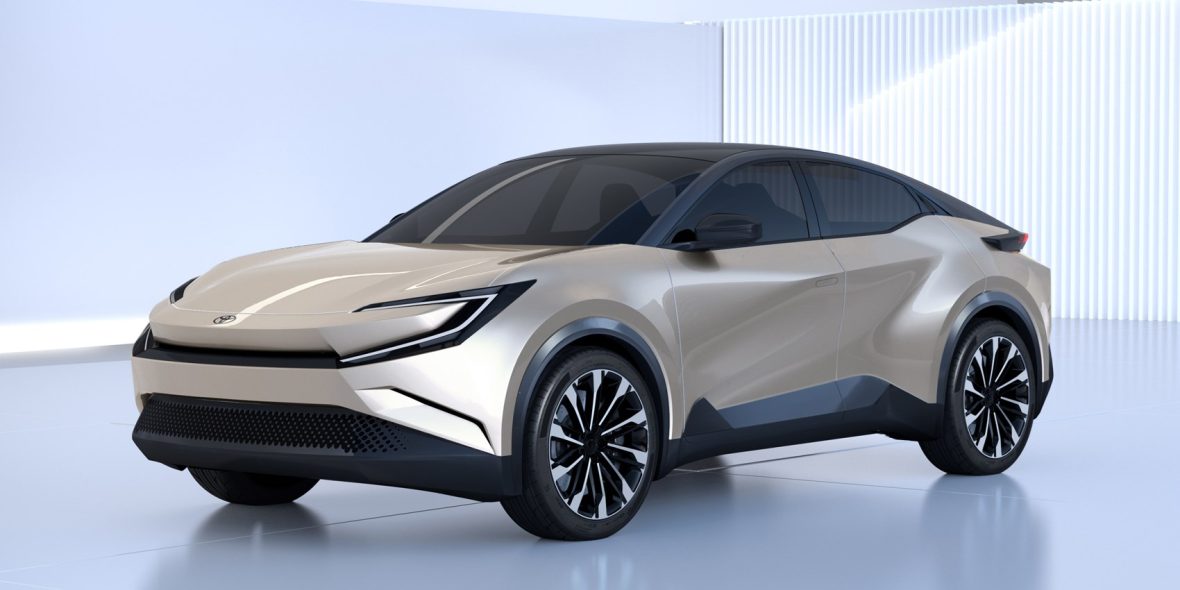Toyota electric car: Everything you should know
The Electrifying Journey of Toyota: Pioneering the Future of Mobility with Electric Cars
Table of Contents
Introduction: toyota electric car

In the ever-evolving landscape of the automotive industry, the paradigm shift towards sustainable and eco-friendly transportation has become increasingly pronounced. Among the frontrunners in this movement is Toyota, a global automotive giant that has been a trailblazer in the development and popularization of electric vehicles (EVs). This article delves into the electrifying journey of Toyota, exploring the company’s commitment to electric cars, its key innovations, the challenges faced, and the impact of its electric vehicles on the automotive landscape.
A Legacy of Innovation
Toyota, a Japanese automaker founded in 1937, has built its reputation on innovation, reliability, and sustainability. The company has been a pioneer in hybrid technology with the introduction of the iconic Toyota Prius in 1997, marking the beginning of its commitment to eco-friendly mobility solutions. As the automotive landscape continued to evolve, Toyota recognized the growing importance of electric vehicles and embarked on a journey to integrate electric cars into its lineup.
The Birth of Toyota’s Electric Cars

The shift towards electric vehicles gained momentum globally in the early 21st century, driven by concerns over environmental sustainability, climate change, and the need to reduce dependence on fossil fuels. In response to this paradigm shift, Toyota set ambitious goals to develop and produce electric cars that would complement its existing hybrid offerings.
The Toyota RAV4 EV, initially introduced in 1997 as a part of a limited production run, was one of Toyota’s early ventures into the electric vehicle market. However, it was the launch of the Toyota Prius Plug-in Hybrid in 2012 that marked a more significant step towards all-electric mobility. The Prius Plug-in Hybrid allowed drivers to travel short distances on electric power alone, offering a taste of the benefits of fully electric driving.
Toyota’s Technological Innovations
- Hybrid Synergy Drive: A Foundation for Success Toyota’s success in the electric vehicle market can be attributed, in part, to its pioneering Hybrid Synergy Drive technology. This innovative system, first introduced in the Prius, seamlessly combines the power of an internal combustion engine with that of an electric motor. The synergy between these two power sources optimizes fuel efficiency, reduces emissions, and provides a smooth driving experience.
- The Mirai and Hydrogen Fuel Cell Technology While many automakers focused on battery electric vehicles (BEVs), Toyota took a different approach by investing in hydrogen fuel cell technology. The Toyota Mirai, launched in 2014, became the world’s first mass-produced hydrogen fuel cell vehicle. The Mirai exemplifies Toyota’s commitment to exploring diverse avenues for sustainable mobility, offering a zero-emission alternative with quick refueling times.
- Solid-State Batteries: The Next Frontier Toyota has been at the forefront of research and development in battery technology. One of the most promising innovations is the exploration of solid-state batteries. These batteries promise higher energy density, faster charging times, and enhanced safety compared to traditional lithium-ion batteries. Toyota’s commitment to solid-state batteries reflects its long-term vision for electric mobility and addresses some of the key challenges faced by electric vehicles.
Challenges Faced by Toyota in the Electric Vehicle Market
While Toyota has made significant strides in the electric vehicle market, it has faced its fair share of challenges. One notable challenge has been the balancing act between its commitment to hybrid technology and the growing demand for fully electric vehicles. As competitors ramp up their efforts in the BEV space, Toyota has had to carefully navigate the transition to all-electric mobility without compromising its leadership in hybrid technology.
- Balancing Hybrid and Electric Offerings Toyota’s success with hybrid vehicles, particularly the Prius, has led to a substantial market share in the hybrid segment. However, the rapid growth of the electric vehicle market, coupled with stringent emissions regulations in various regions, has prompted a shift towards fully electric solutions. Striking the right balance between hybrid and electric offerings has been a strategic challenge for Toyota, requiring careful consideration of market trends and consumer preferences.
- Global Regulatory Landscape The regulatory landscape for electric vehicles varies significantly across different regions. While some countries provide incentives and support for electric vehicle adoption, others may have policies that favor different types of eco-friendly technologies. Adapting to these diverse regulatory environments requires a nimble and adaptive approach from automakers, and Toyota has had to navigate these complexities to ensure compliance with evolving standards.
- Consumer Perceptions and Range Anxiety Convincing consumers to embrace electric vehicles has been a common challenge for the entire automotive industry. Concerns about the limited range of electric cars, commonly known as “range anxiety,” and the availability of charging infrastructure have influenced consumer perceptions. Toyota has had to address these concerns through education, marketing, and strategic partnerships to build confidence in the viability of electric cars as practical and convenient daily drivers.
Impact on the Automotive Landscape
Toyota’s foray into electric vehicles has had a substantial impact on the automotive landscape, influencing industry trends and shaping the future of mobility. Several key aspects highlight the significance of Toyota’s role in the evolution of electric cars:
- Hybrid Pioneering and Mainstreaming Toyota’s early commitment to hybrid technology, exemplified by the Prius, played a pivotal role in popularizing eco-friendly driving. The success of the Prius demonstrated that consumers were willing to embrace hybrid vehicles, laying the groundwork for the broader acceptance of electric cars. Toyota’s hybrid offerings have not only contributed to a reduction in overall carbon emissions but have also served as a gateway for consumers to transition to fully electric vehicles.
- Hydrogen Fuel Cell Leadership The introduction of the Mirai and Toyota’s investment in hydrogen fuel cell technology have positioned the company as a leader in alternative propulsion methods. While hydrogen fuel cell vehicles have faced challenges related to infrastructure and production costs, Toyota’s commitment has contributed to ongoing research and development in this field. The Mirai remains a symbol of Toyota’s dedication to exploring diverse sustainable solutions beyond traditional battery electric vehicles.
- Innovations in Battery Technology Toyota’s pursuit of solid-state battery technology showcases its commitment to addressing the limitations of current battery systems. The successful development and integration of solid-state batteries have the potential to revolutionize the electric vehicle market by addressing concerns related to energy density, charging times, and safety. Toyota’s advancements in this area could influence the entire industry, fostering the widespread adoption of electric vehicles.
- Global Market Presence Toyota’s global reach and market presence make its contributions to the electric vehicle market particularly influential. As the demand for electric cars continues to grow, Toyota’s ability to leverage its global footprint, manufacturing capabilities, and distribution networks positions it as a key player in the transition to sustainable mobility. The company’s investments in electric vehicle production facilities underscore its commitment to meeting the evolving needs of consumers worldwide.
Tecno Spark 5 Air price in Nigeria: Read before you buy.
The Future of Toyota’s Electric Cars
Looking ahead, Toyota’s commitment to electric cars remains steadfast, with the company poised to play a pivotal role in shaping the future of mobility. Several key initiatives and developments provide insights into the direction Toyota is heading in the electric vehicle space:
- The Toyota bZ Series: A New Chapter in BEVs The bZ series, short for “Beyond Zero,” represents Toyota’s dedicated line of battery electric vehicles. This series is a clear indication of Toyota’s focus on expanding its presence in the fully electric segment. The bZ series aims to offer a range of electric vehicles catering to different market segments, with an emphasis on sustainability, performance, and innovation.
- Solid-State Batteries: A Game-Changer in the Making Toyota’s continued investment in solid-state battery technology signals a commitment to overcoming one of the major barriers to widespread electric vehicle adoption. The potential benefits of solid-state batteries, including increased energy density, faster charging times, and enhanced safety, align with Toyota’s vision for the future of electric mobility. The successful development and integration of solid-state batteries into Toyota’s electric vehicles could set new industry standards.
- Collaborations and Partnerships Recognizing the complexity and interdisciplinary nature of electric mobility, Toyota has engaged in collaborations and partnerships to accelerate innovation. Collaborations with technology companies, energy providers, and other automakers enable Toyota to leverage a diverse range of expertise. These partnerships not only facilitate the development of cutting-edge technologies but also contribute to the establishment of a comprehensive electric vehicle ecosystem.
- Hydrogen Fuel Cell Expansion While the focus on battery electric vehicles is evident, Toyota remains committed to advancing hydrogen fuel cell technology. The company continues to explore applications beyond passenger vehicles, including the use of fuel cells in commercial vehicles and other industrial applications. This multi-faceted approach to sustainable mobility reinforces Toyota’s commitment to providing a diverse range of solutions to meet the unique needs of various markets.
Conclusion
Toyota’s journey in the electric vehicle market reflects a commitment to innovation, sustainability, and addressing the challenges of the evolving automotive landscape. From pioneering hybrid technology with the Prius to venturing into hydrogen fuel cell vehicles with the Mirai, Toyota has consistently explored diverse pathways to sustainable mobility. The introduction of the bZ series and ongoing research into solid-state batteries further underscore Toyota’s dedication to shaping the future of electric cars.
As the automotive industry undergoes a transformative shift towards electrification, Toyota’s legacy of innovation positions it as a key influencer in this transition. The company’s global presence, technological prowess, and commitment to a diverse range of eco-friendly solutions make it a driving force in the pursuit of sustainable and accessible electric mobility. Toyota’s electric cars not only represent a technological achievement but also a testament to the company’s vision of a future where mobility is not only efficient but also environmentally responsible.

